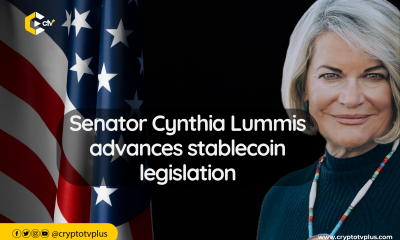News
Nigeria Crypto Tax Update, COVID-19 Research, Stablecoin Bill: Weekly Crypto Update

Nigeria’s latest tax regulations have set off a chain reaction in the cryptocurrency world. Experts are weighing in on how this could affect crypto holders. Meanwhile, we’re seeing individuals like Vitalik Buterin and Sandip Nawal invest heavily in COVID-19 research and medical infrastructure. This article provides an in-depth look into these developments, analyzes expert opinions, and predicts the future of Nigeria’s cryptocurrency industry.
Nigeria’s Crypto Tax Regulation
According to the Finance Act 2023, cryptocurrency holders in Nigeria will now be subject to a 10% capital gains tax on their trading and investment profits. This change follows the launch of the national blockchain policy by the Nigeria Information Technology and Development Agency, which affirms the legality of blockchain technology.
Despite this progressive move, the Central Bank of Nigeria still prohibits financial institutions from facilitating cryptocurrency transactions. The experts in the blockchain and cryptocurrency industry are calling on the Nigerian government to consider the opportunities and challenges facing cryptocurrencies.
Notable figure in the virtual asset and blockchain space, Senator Lead Partner, is emphasizing the need for the government to act urgently and leverage the National Blockchain Policy. The goal is to persuade the Central Bank of Nigeria (CBN) to withdraw or review its previous directive prohibiting cryptocurrencies.
Binance’s Changes and Stablecoin Bill
Binance has announced that it will no longer accept U.S. dollar deposits and restrict users’ ability to withdraw dollars. This decision was made due to the support shown by U.S. financial regulators in freezing Binance’s assets.
Furthermore, the United States House Financial Services Committee has released the third draft of a stablecoin bill titled “The Future of Digital Assets: Providing Clarity for the Digital Asset Ecosystem.” The proposed bill aims to designate the U.S. Federal Reserve as the primary regulator for issuing stablecoins while granting state regulators the power to oversee token-issuing companies.
Investments in COVID-19 Research
Vitalik Buterin, the co-founder of Ethereum, has joined forces with India-based cryptocurrency fund Crypto Relief and Sandip Nawal, co-founder of Polygon. Together, they have pledged $100 million towards COVID-19 research and medical infrastructure development in India.
Crypto Relief will provide $90 million in US Dollar Coin, while Buterin himself will contribute $10 million. These funds will be distributed to support initiatives aimed at combating the COVID-19 pandemic in India, all with the goal of finding global solutions to future health crises.
Conclusion
As Nigeria begins implementing crypto taxation laws, the country is embracing the potential of blockchain technology. However, ensuring compliance with cryptocurrency regulations will be vital if Nigeria hopes to lead as a major player in the blockchain industry and drive economic growth.
Meanwhile, the recent changes at Binance and proposed legislation on stablecoins in the United States have the potential to shake up the global cryptocurrency market.
In addition to financial gains, the recent investments from Vitalik Buterin and Sandip Nawal demonstrate the importance of utilizing technological advancements and community support in the battle against worldwide health crises such as COVID-19.
Read also; Tether Partners with Yellow Card to Empower African Youths: Weekly Crypto Update
















